Premium Only Content
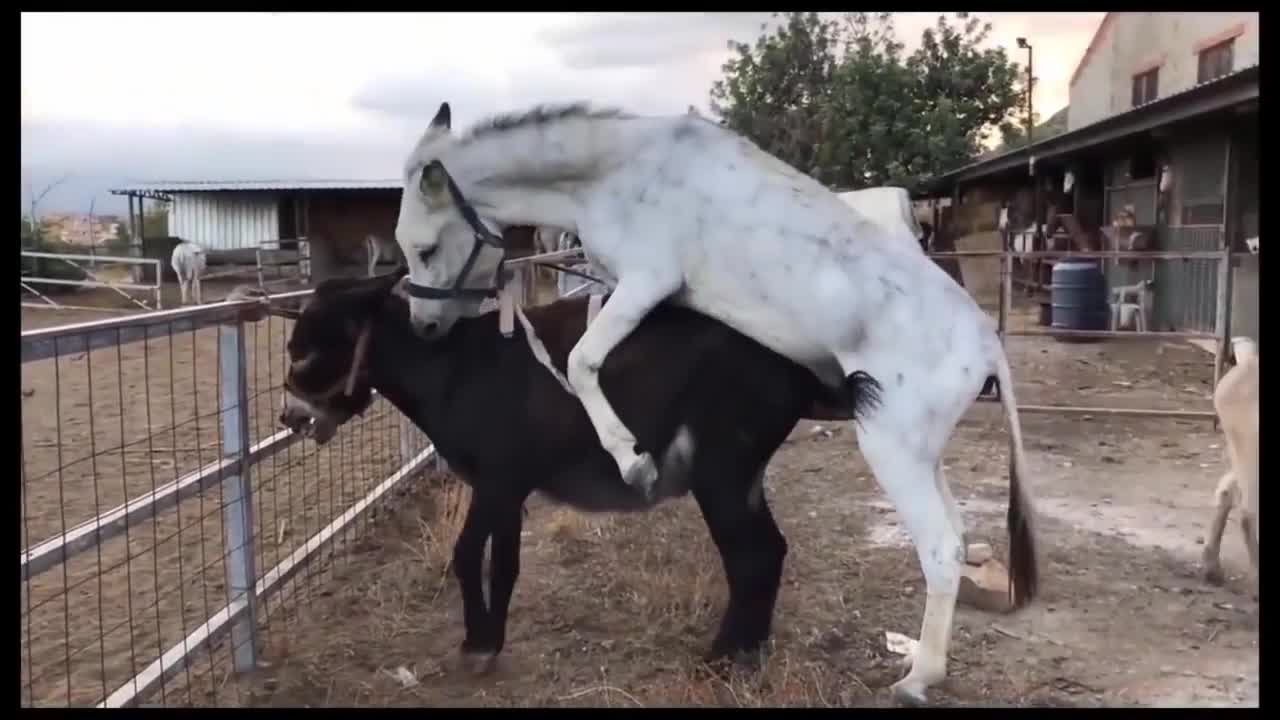
Horse Mating Donkey | Breeding Compilation
Horse Mating Donkey Donkeys Breeding Animals Mating Compilation
DAILY DOSE OF CREATIVITY
Published on Jan 31, 2020
Horse Mating Donkey Donkeys Breeding Animals Mating Compilation
➡ SUBSCRIBE!
For thousands of years donkeys have been the ‘helping hooves’ of humankind – they are the original beasts of burden. In many countries of the world, and in many situations, they are used as the preferred mode of transport. Donkeys are much more of an all terrain animal than horses. Donkeys are in fact a highly intelligent animal despite popular misconception.
Donkeys can live for over 50 years
Donkeys are very strong and intelligent
A donkey is stronger than a horse of the same size.
Donkeys have an incredible memory – they can recognise areas and other donkeys they were with up to 25 years ago.
Donkey characteristics
Donkeys are not easily startled (unlike horses) and have a keen sense of curiosity.
Donkeys have a reputation for stubbornness but this is due to their highly developed sense of self preservation. It is difficult to force or frighten a donkey into doing something it sees as contrary to its own best interest or safety.
Donkeys are more independent in their thinking than horses and will reason, then make decisions based on their safety.
Training a donkey relies upon showing him or her, by words and action, that they can trust you to protect them from harm. They learn what it is we want them to do if we take time to show them.
Donkeys originate from desert areas of the earth
In the desert environment a donkey is able to hear the call of another donkey 60 miles away, they have far larger ears than horses. Their large ears also help keep them cool.
Because food is scarce in the desert, donkeys utilise 95% of what they eat which means their manure is not a very good fertilizer for land. Their digestive system can break down inedible vegetation and extract moisture from food more efficiently.
They don’t like the rain and being out in it for long periods can damage their health as their fur is not waterproof.
Donkeys are herd animals
Donkeys don’t like being kept on their own although a single donkey will live quite happily with goats.
A herd will choose the strongest donkey to be their leader, even if domesticated. In the wild the lead donkey would stay to ward off an attack by a wolf or other predators in order to allow the rest of the herd to escape to safety.
Donkeys in a herd will groom each other in the same way as monkeys and chimps do.
The work of donkeys through the ages
The wealth of the Egyptians was due to the precious metals carried from Africa by donkeys.
Donkeys were used to carry silk along the ‘Silk Road’ from the Pacific Ocean to the Mediterranean in return for trade goods.
In Greece donkeys were used for working on the narrow paths between vines and their work in vineyards spread as far as Spain.
The donkey was associated with the Syrian God of Wine, Dionysius.
The Roman Army moved donkeys into Northern Europe using them in agriculture, vineyards and as pack animals.
Donkeys came to England with the Roman invasion of Britain in 43CE.
Donkeys are often a lifeline to families in many regions of the world. They help with water and wood fuel collection, land cultivation and transportation of produce to market.
Donkeys are used as guard animals for cattle, sheep and goats since they have a natural aversion to canines and will keep them away from a flock.
Donkeys are often fielded with horses due to the perceived calming effect they have on nervous horses. If a donkey is introduced to a mare and foal, the foal will often turn to the donkey for support after it has left its mother.
Fun Horse Facts for Kids
Horses can sleep both lying down and standing up.
Horses can run shortly after birth.
Domestic horses have a lifespan of around 25 years.
A 19th century horse named 'Old Billy' is said to have lived 62 years.
Horses have around 205 bones in their skeleton.
Horses have been domesticated for over 5000 years.
#NatGeoWILD #zebra #horse # animals #Beast kingdoms
Ed Lyall from Arundel Equine Hospital gives us a insight into how to breed horses using artificial insemination,
About BEASTS KINGDOMS:
National Geographic Wild is a place for all things animals and for animal-lovers alike. Take a journey through the animal kingdom with us and discover things you never knew before, or rediscover your favorite animals!
Thanks for watching and supporting our channel, wait to see more new videos on Wednesday on Wildlife Documentary
Get More BEASTS KINGDOMS:
Horse Mating Donkey Donkeys Breeding Animals Mating Compilation
-
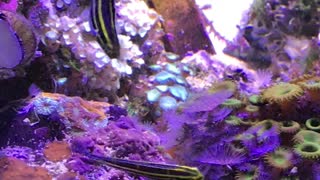 0:51
0:51
PaulsPodsandMarineOrnamentals
4 years ago $0.01 earnedBreeding the Stiped Blenny: The Mating Dance
100 -
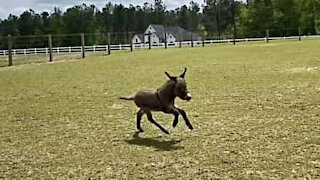 0:47
0:47
Buzzvideos - EN
5 years agoYoung donkey runs as fast as a horse
50 -
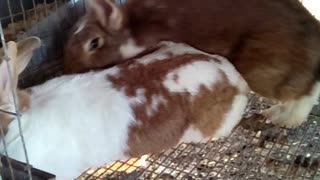 1:38
1:38
BigJoesOutdoors
4 years ago $0.02 earnedBreeding rabbits
44 -
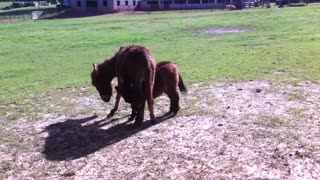 0:46
0:46
Kbelland
4 years ago $0.02 earnedMiniature Donkey
225 -
 3:46
3:46
RandomFiles
4 years agoFUNNY DANCE COMPILATION
2601 -
 LIVE
LIVE
Game On!
19 hours ago $0.94 earnedFootball IS BACK! Cowboys vs Eagles Opening Night Kickoff!
3,405 watching -
 LIVE
LIVE
The Bubba Army
22 hours ago#1 Documentary IN THE WORLD! - Bubba the Love Sponge® Show | 9/04/25
2,894 watching -
 39:31
39:31
Her Patriot Voice
14 hours ago $1.07 earnedBlack Conservative Surrounded + ROBBED By Leftists!
4.27K22 -
 13:25
13:25
The Gun Collective
14 hours agoWOW! A LOT of new GUNS just dropped!
12.7K7 -
 LIVE
LIVE
BEK TV
23 hours agoTrent Loos in the Morning - 9/04/2025
212 watching